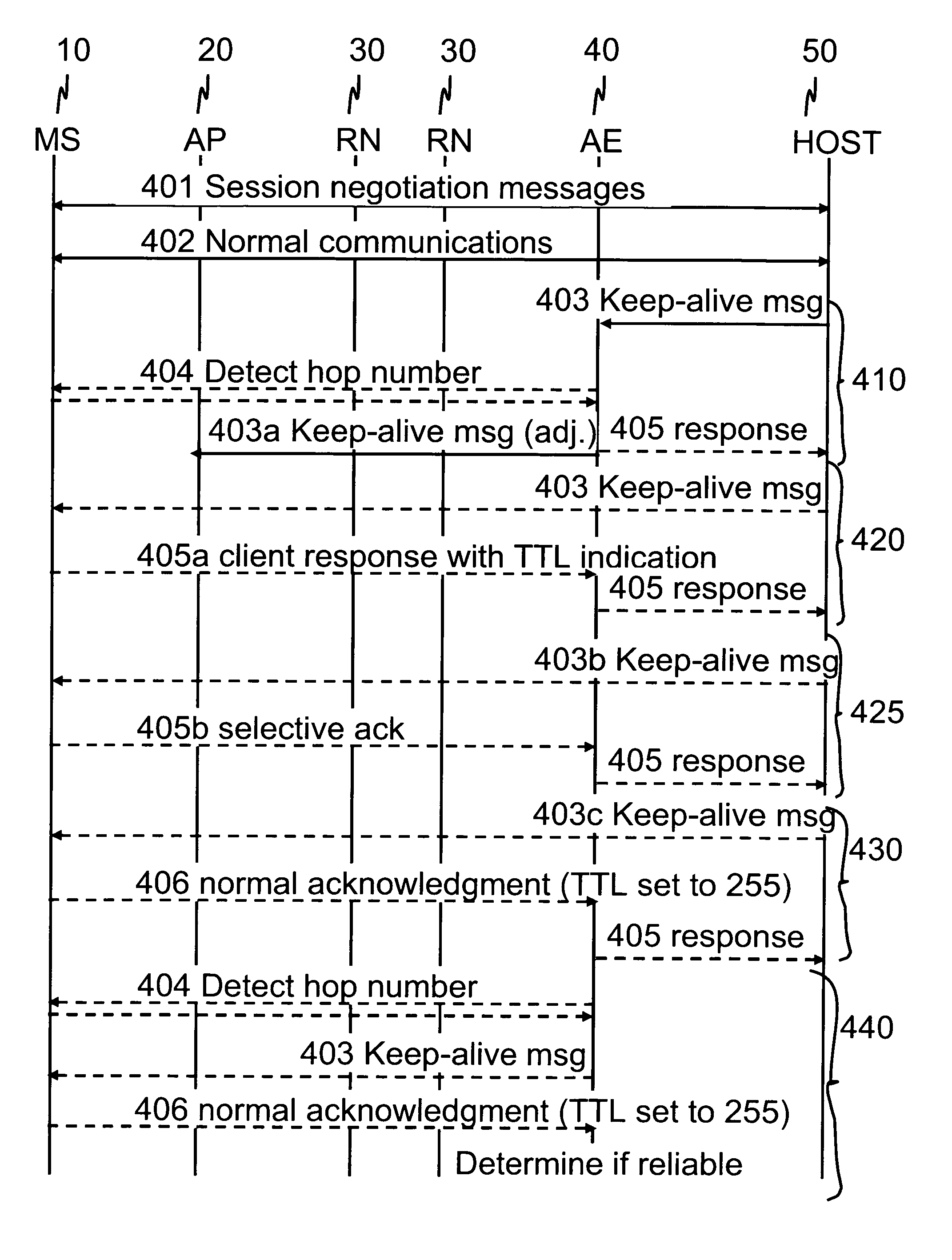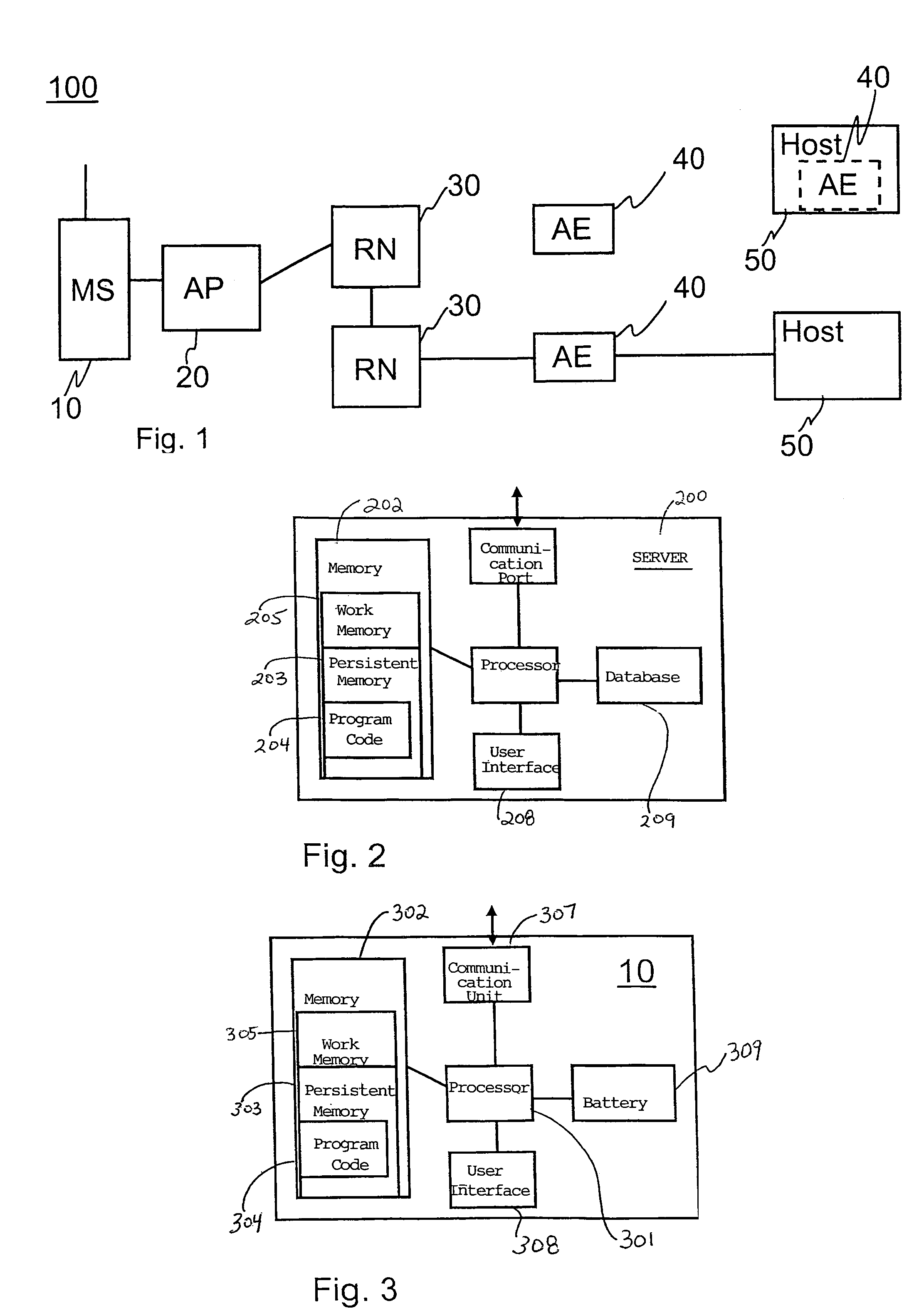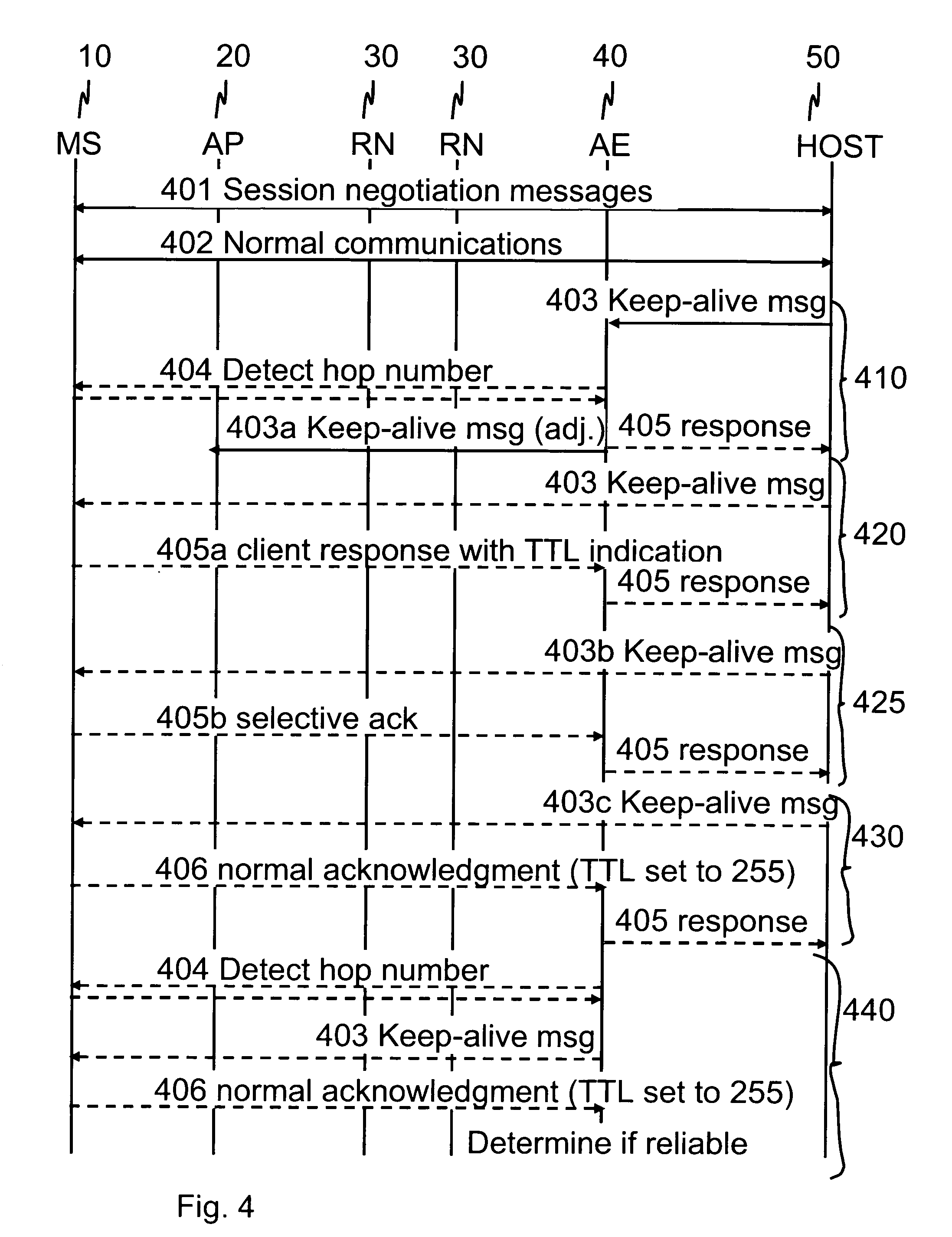Communications control for extending the period over which a terminal is able to have an open connection with a host accessible via a packet data network
a technology of communication control and open connection, applied in the field of communication control, can solve the problems of reducing the battery life of a mobile telephone, wasting the battery, and wasting the battery even faster
- Summary
- Abstract
- Description
- Claims
- Application Information
AI Technical Summary
Benefits of technology
Problems solved by technology
Method used
Image
Examples
Embodiment Construction
[0052]In the following description, line numbers denote like elements. The detailed description aims to illustrate various embodiments of the invention. In this description, host generally refers to an entity which provides given service or services to a terminal. The provided service may simply be network connectivity. Various network elements described herein may be implemented as physically distributed equipment and different network elements may also be combined together without departing from the claimed invention.
[0053]FIG. 1 shows a system 100 comprising a terminal 10 (e.g. a mobile station MS), an access point such as a base transceiver station (BTS) 20 to provide connectivity to a radio access network (RAN), a plurality of routing nodes 30 such as network address translators (NAT), firewalls and routers, one or more adaptation entities 40 and one or more network parties 50, which typically act as hosts but may alternatively or additionally act as clients. The terminal 10 ty...
PUM
 Login to View More
Login to View More Abstract
Description
Claims
Application Information
 Login to View More
Login to View More - R&D
- Intellectual Property
- Life Sciences
- Materials
- Tech Scout
- Unparalleled Data Quality
- Higher Quality Content
- 60% Fewer Hallucinations
Browse by: Latest US Patents, China's latest patents, Technical Efficacy Thesaurus, Application Domain, Technology Topic, Popular Technical Reports.
© 2025 PatSnap. All rights reserved.Legal|Privacy policy|Modern Slavery Act Transparency Statement|Sitemap|About US| Contact US: help@patsnap.com



